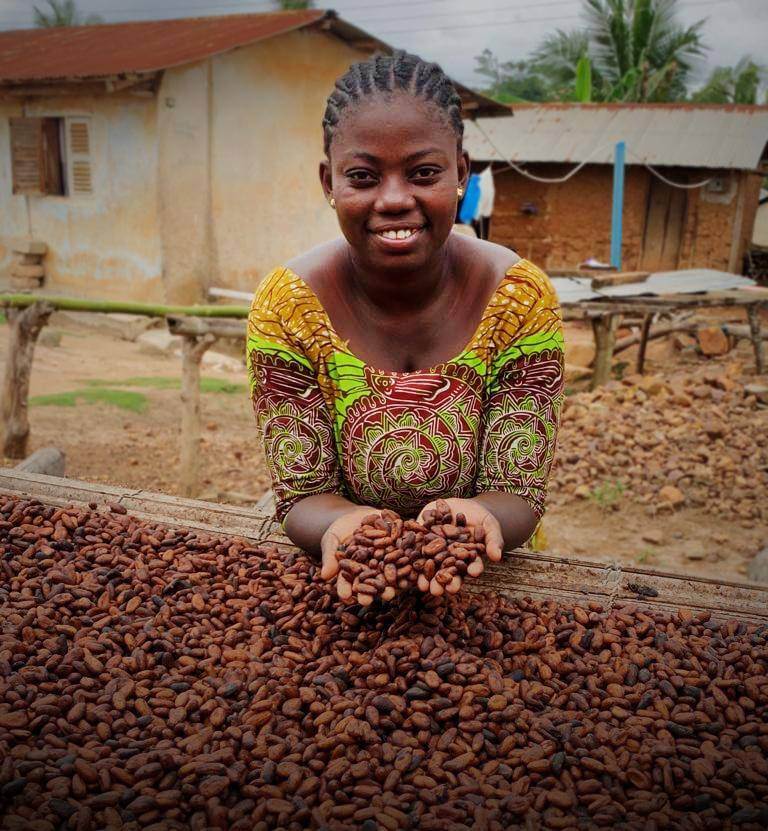
Ghanian Farmers Anticipate Profit from Chocolate
There is a lot of money in chocolate but the producers of the raw material see very little of it.
Last year the retail industry was worth $107bn (£78bn), according to one projection, but Ghana – the world’s second largest cocoa producer – earned just around $2bn.
This is a familiar pattern for many African countries where the economy is still shaped by a colonial relationship in which they export commodities to be processed elsewhere.
Ghana’s President, Nana Akufo-Addo, served notice on this last year when he told an audience in Switzerland that “there can be no future prosperity for the Ghanaian people” if this way of doing things continues.
The country currently processes about 30% of its cocoa crop, but despite plans for growing the domestic chocolate industry there are still many obstacles in the way.
Ambitious cocoa farmer Nana Aduna II – a traditional ruler, who inherited his 80-acre plantation two decades ago – is well aware of the difficulties.
He is among a number of Ghanaian entrepreneurs who are keen to seize the opportunity to process cocoa in Ghana itself, before exporting a more lucrative finished product.
But when it comes to the sweet stuff, Nana Aduna “decided not to go down the chocolate route”, he said.
“The equipment to make chocolate is very expensive,” he explains. “Plus we don’t have a local sugar industry and we don’t have a local dairy industry.”
Instead he makes an income from offering tours where visitors can witness the fermentation process and observe how the cocoa pods are left outdoors to dry in the sun before they are processed into teas, wines and cacao nibs to be sold.
To make chocolate, on the other hand, would require Nana Aduna to import milk and sugar, which would drive up the cost of production.
He also says producing the confectionery requires consistent refrigeration, but the high cost of the equipment to achieve that is a major obstacle for entrepreneurs without substantial funds.
The farmer’s teas and wines are not typically associated with cocoa, but the goods are selling well, according to Nana Aduna, who says he can make 15 to 20 times more on these products than the raw beans.
Chocolate could have more of a mass market appeal and also offer good returns but for the moment, he says that’s not viable.
There are others with ambitions to set up a processing plant in Ghana but who are currently taking the cocoa beans overseas.
They include British-Ghanaian farm-owner and chocolate-maker Raphael Dapaah, who is based in London.
In 2016, he decided to add value to the cocoa that his family has been growing in Ghana for six decades by co-founding premium vegan brand Dapaah Chocolates.
He refines batches of chocolate in his London factory incorporating ingredients such as coconut milk powder and sea salt from Ghana’s Atlantic coast.

